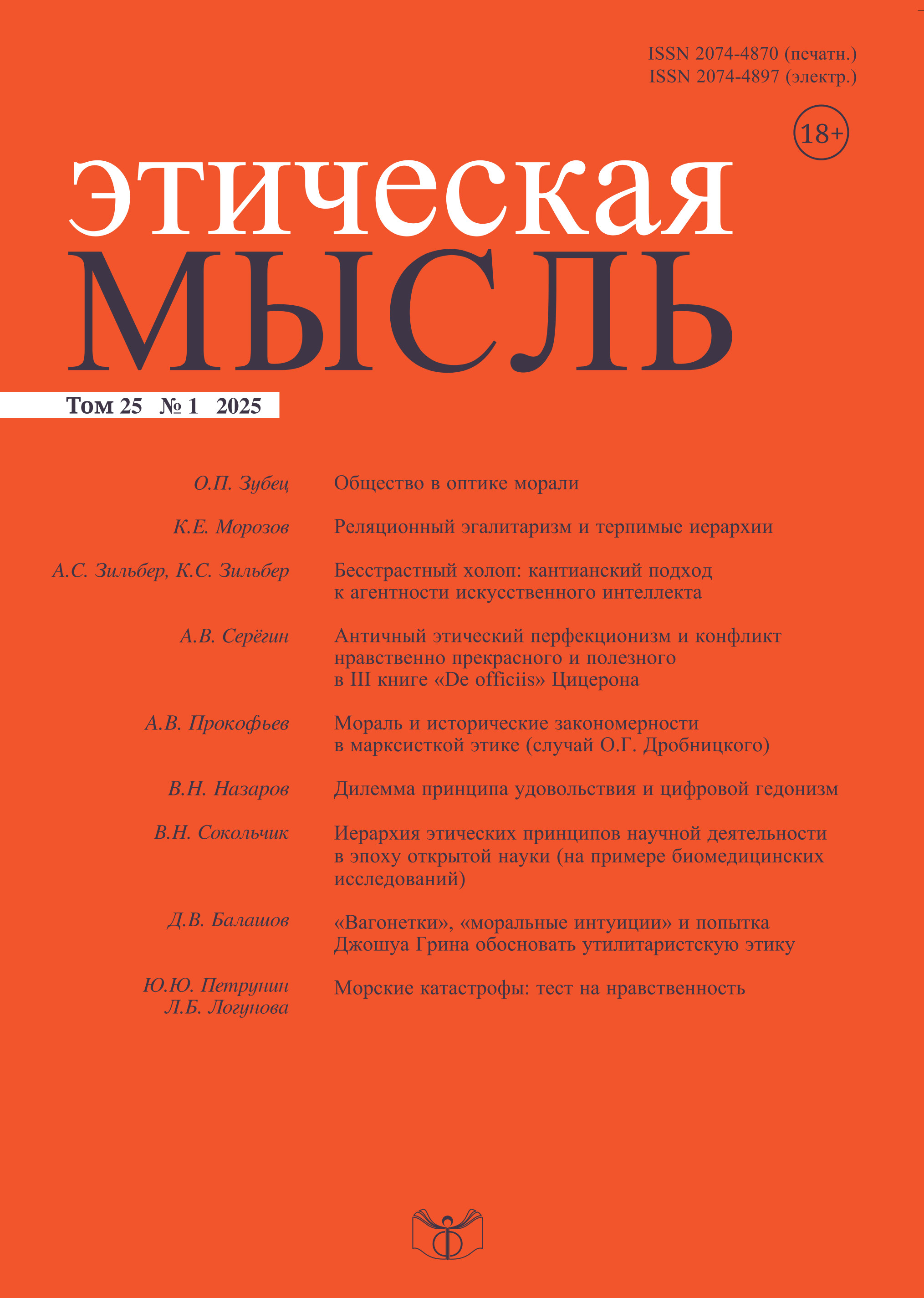“Trolleyology”, “Moral Intuitions” and the Attempt to Justify the Utilitarianism by Joshua Greene
DOI:
https://doi.org/10.21146/2074-4870-2025-25-1-125-138Keywords:
utilitarianism, thought experiment, “Trolley Problem”, moral intuitions, deep pragmatism, “Hume’s Guillotine”Abstract
One of the most prominent research tools characteristic of the analytical Anglo-American moral philosophy of the second half of the 20th – early 21st centuries was the method of thought experiment. These experiments allow us to figuratively formulate key issues of philosophical ethics. On the one hand, this increased interest in fundamental philosophical questions, and, on the other hand, it stimulated many philosophers to address these thought experiments, which have become known as “moral dilemmas”. Some of these dilemmas reflect the complexity of key philosophical ethical issues and still have no clear solutions. A striking example of this is the experiment known as the “trolley problem”. At the end of the 20th century, the possibilities for studying the human brain expanded significantly. This allowed scientists in the field of neuroscience to explore, among other things, how the brain responds to moral dilemmas. Joshua Green was a pioneer in this area. His innovative research revealed how the human brain responds to moral challenges. He called these responses “moral intuitions”. Green also discovered that the brain reacts to moral dilemmas in two ways: automatically, following an evolutionary program, and rationally at a more complex level. It was the second level of rational thinking, similar to utilitarianism, that Green proposed as the basis for a normative concept which he called “deep pragmatism”. It would be correct to assert that “deep pragmatism” is a new attempt to justify utilitarianism. This article examines the main provisions of Green’s theory of “moral intuitions”, the concept of “deep pragmatism”, as well as outlines areas of criticism against the concept of “deep pragmatism” and identifies problems that Green’s research raises for moral philosophy in general.









